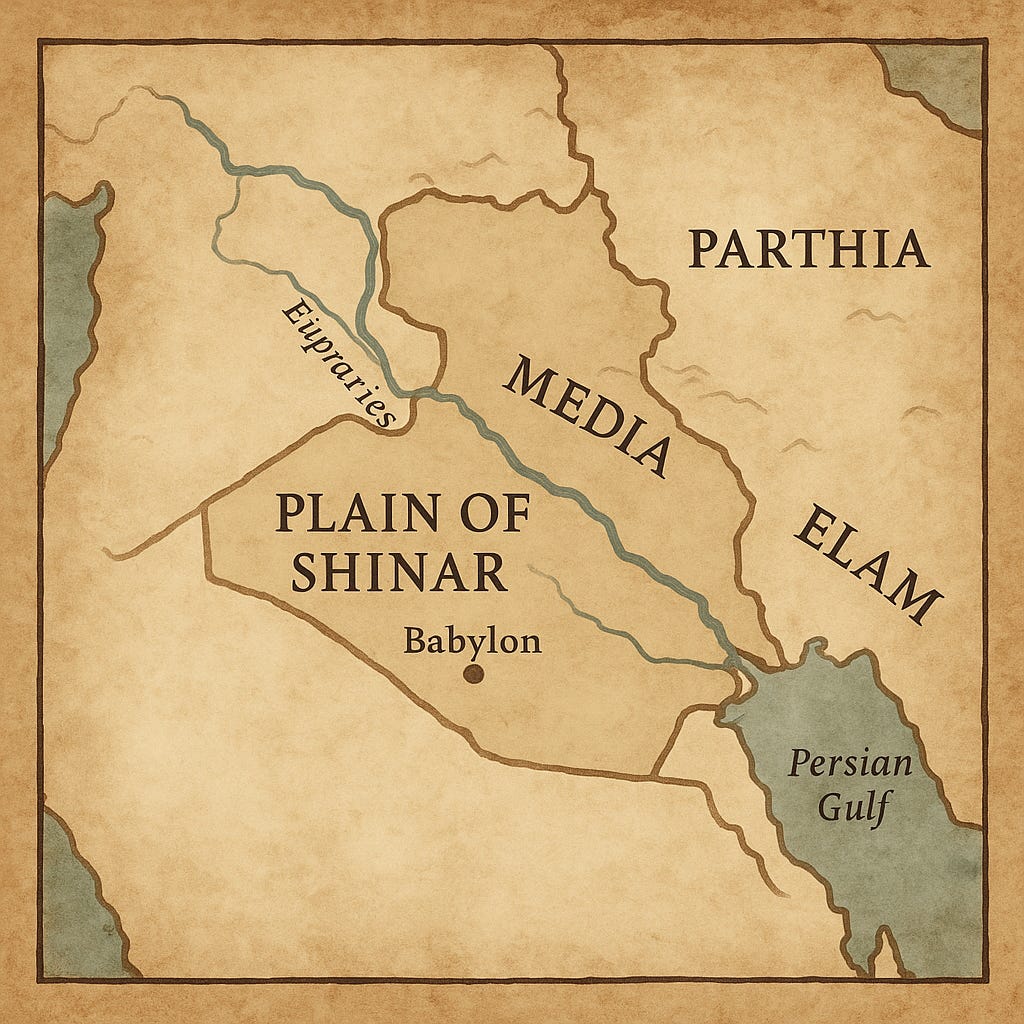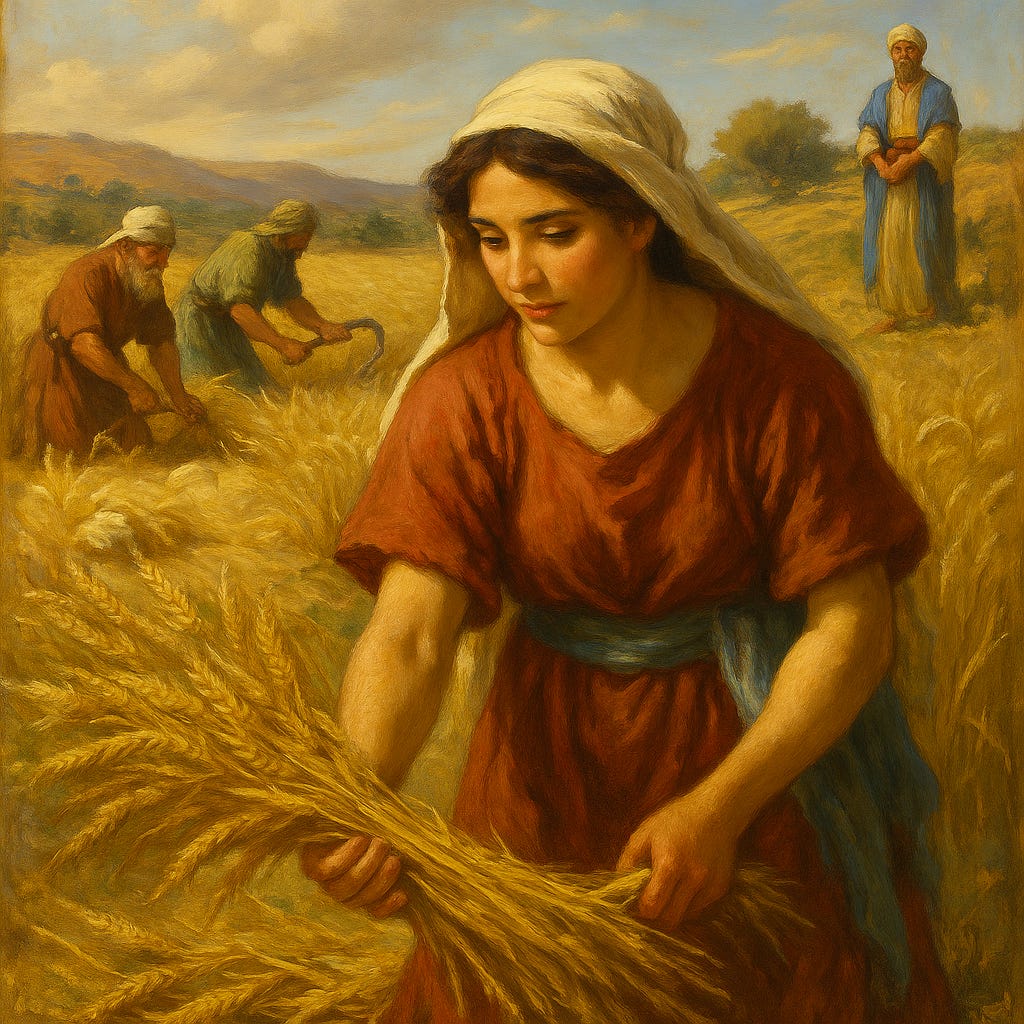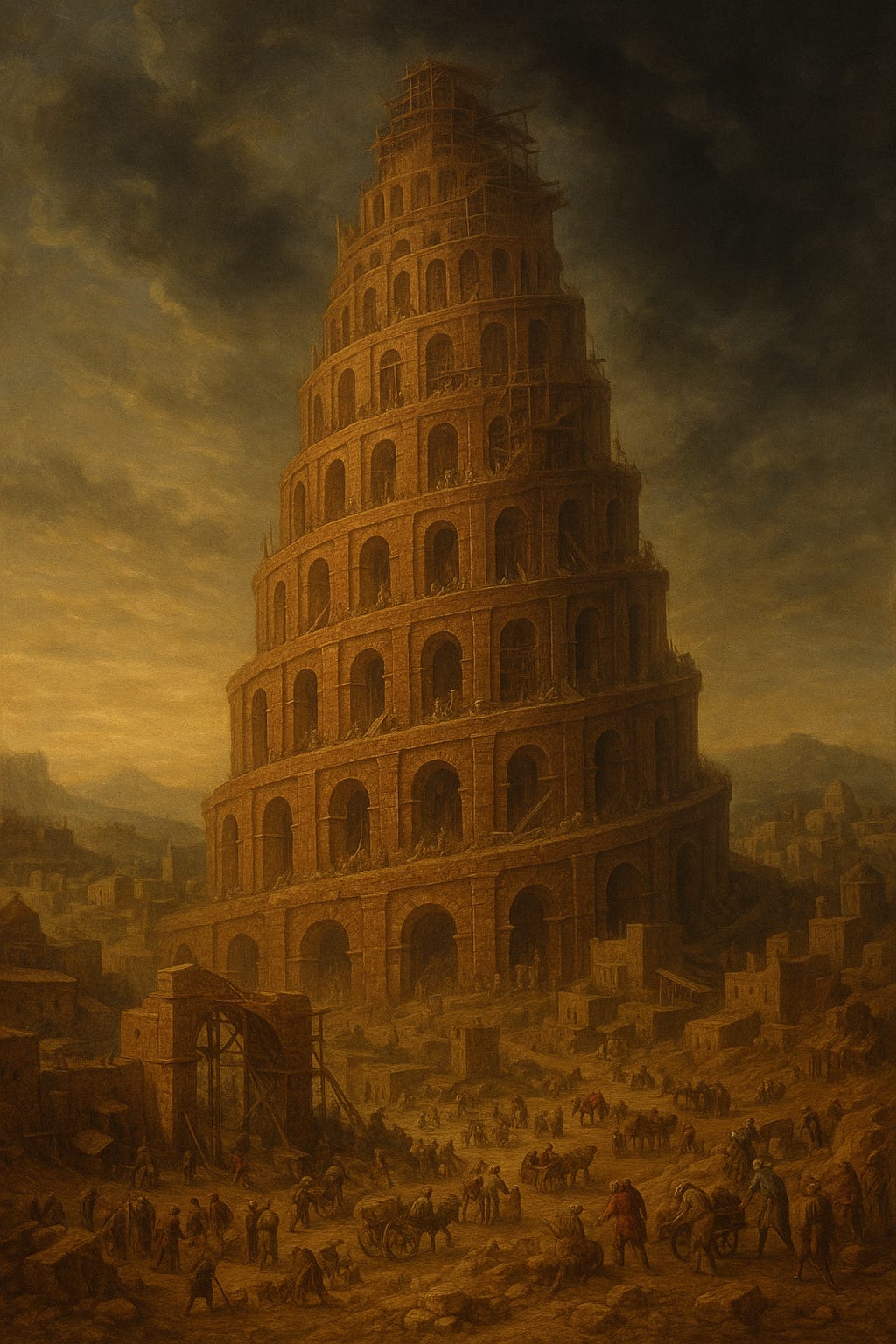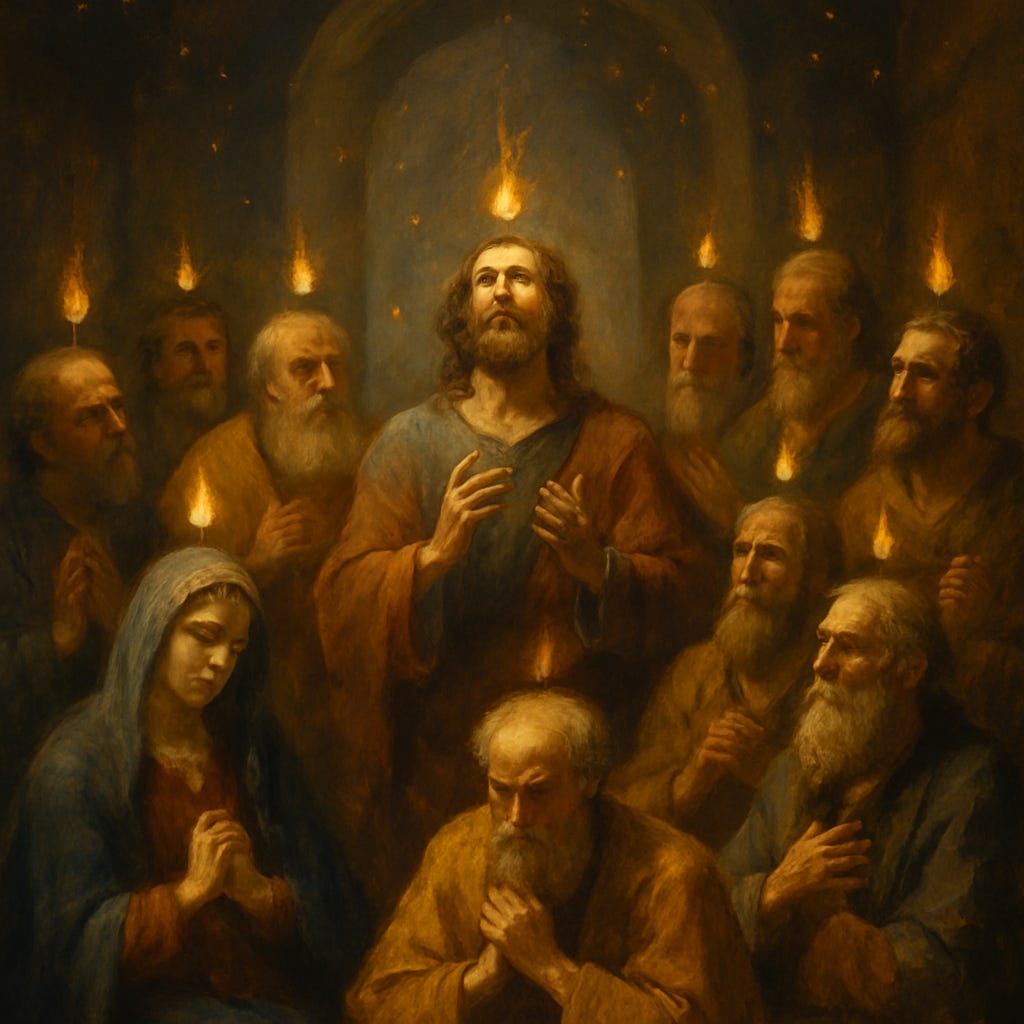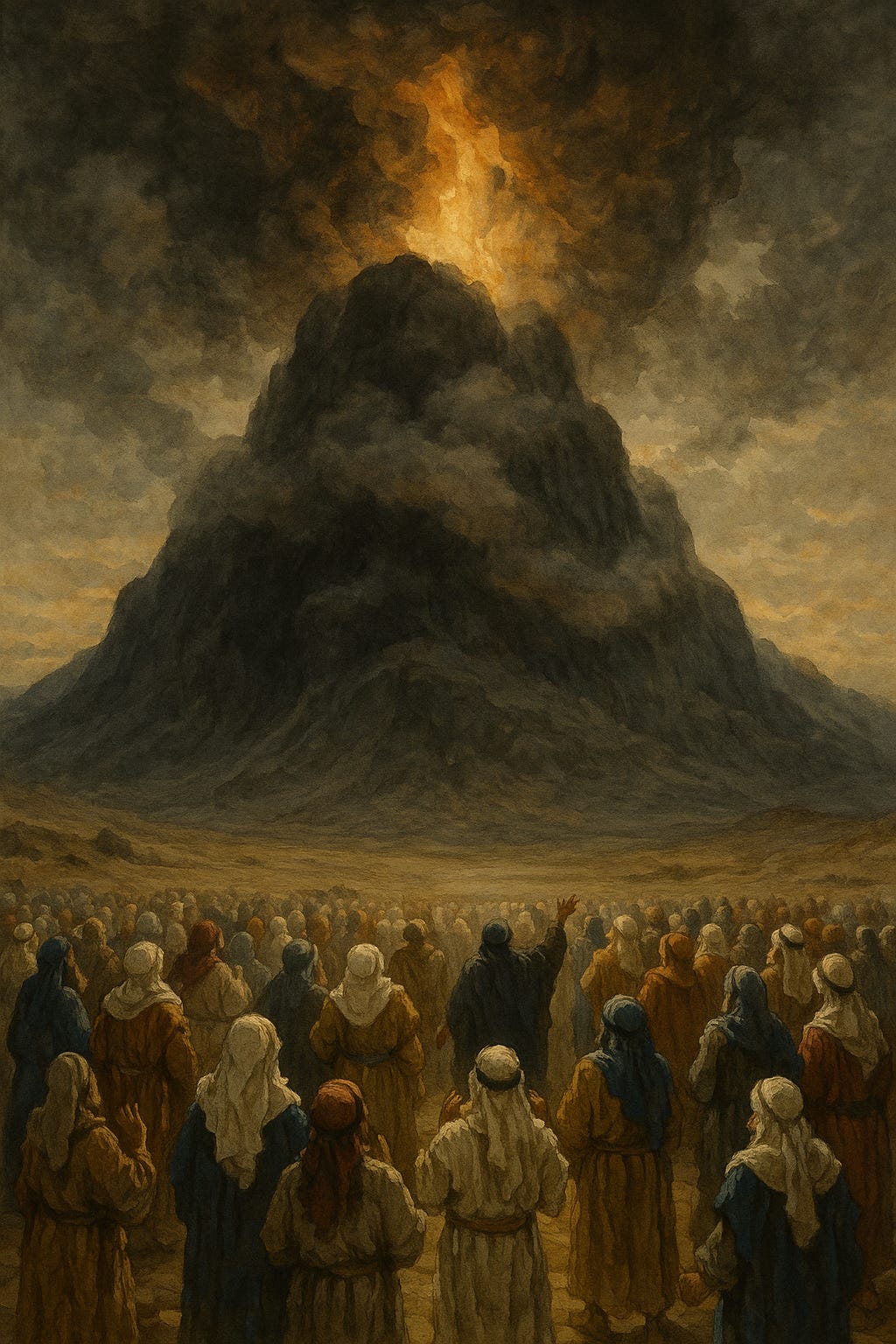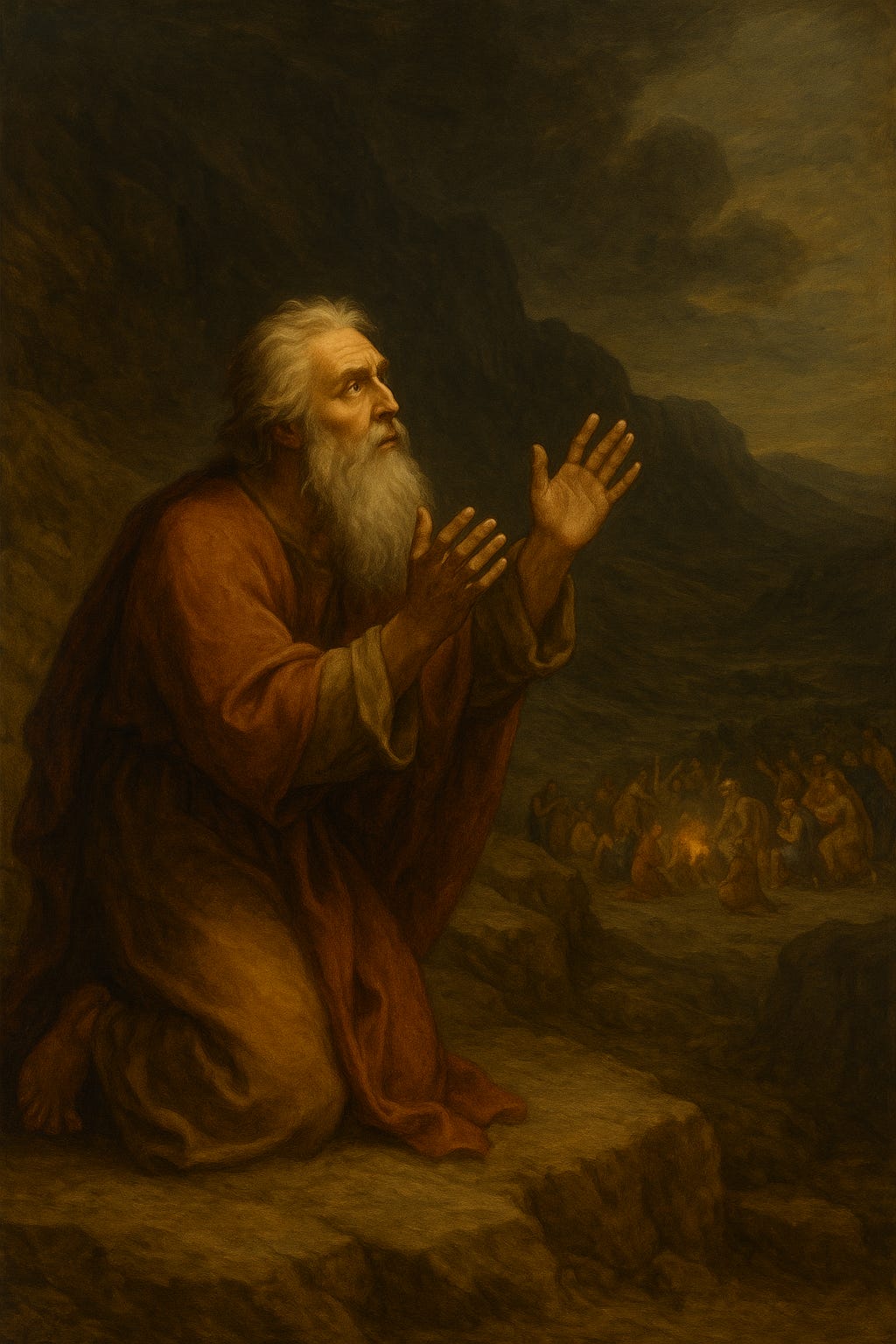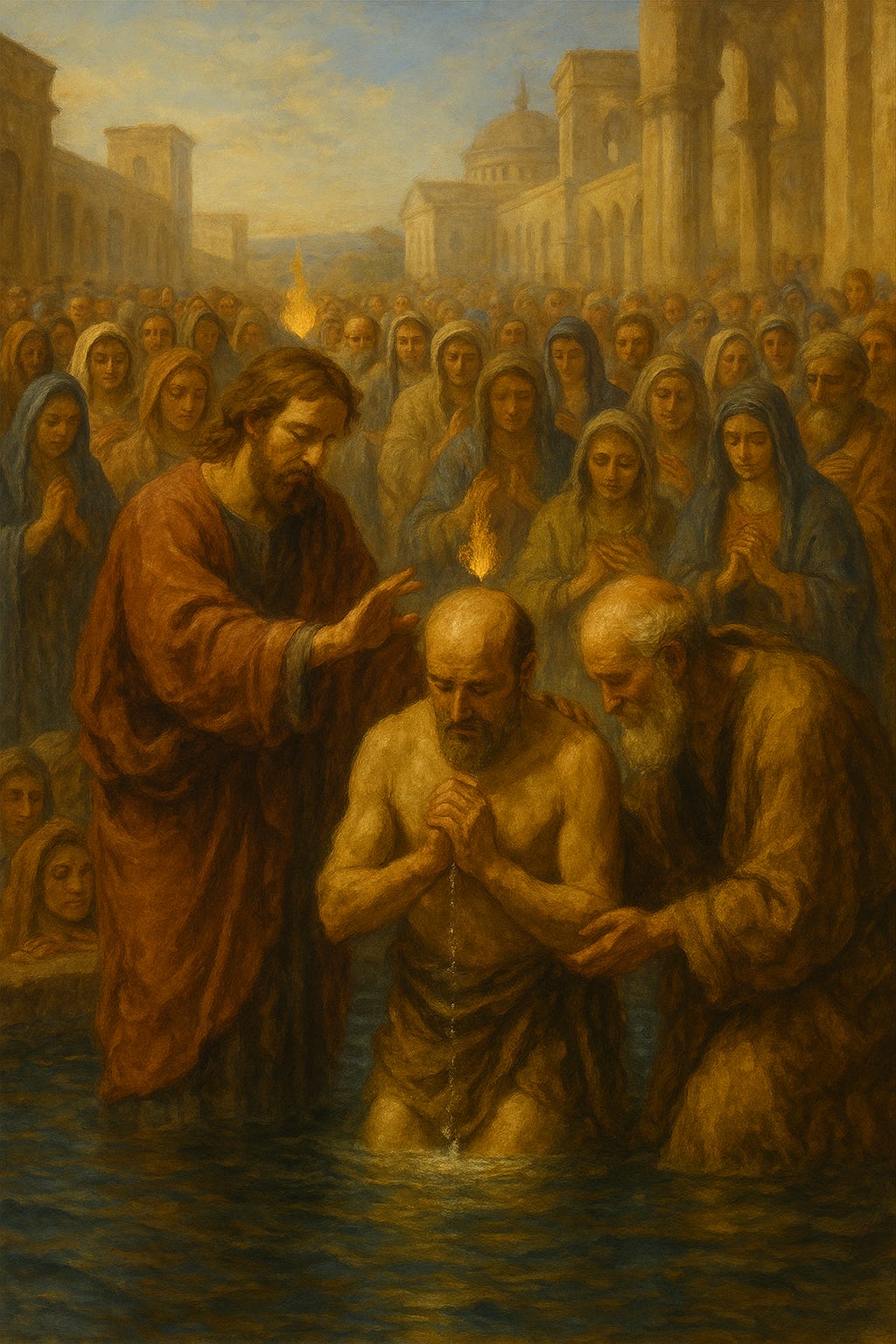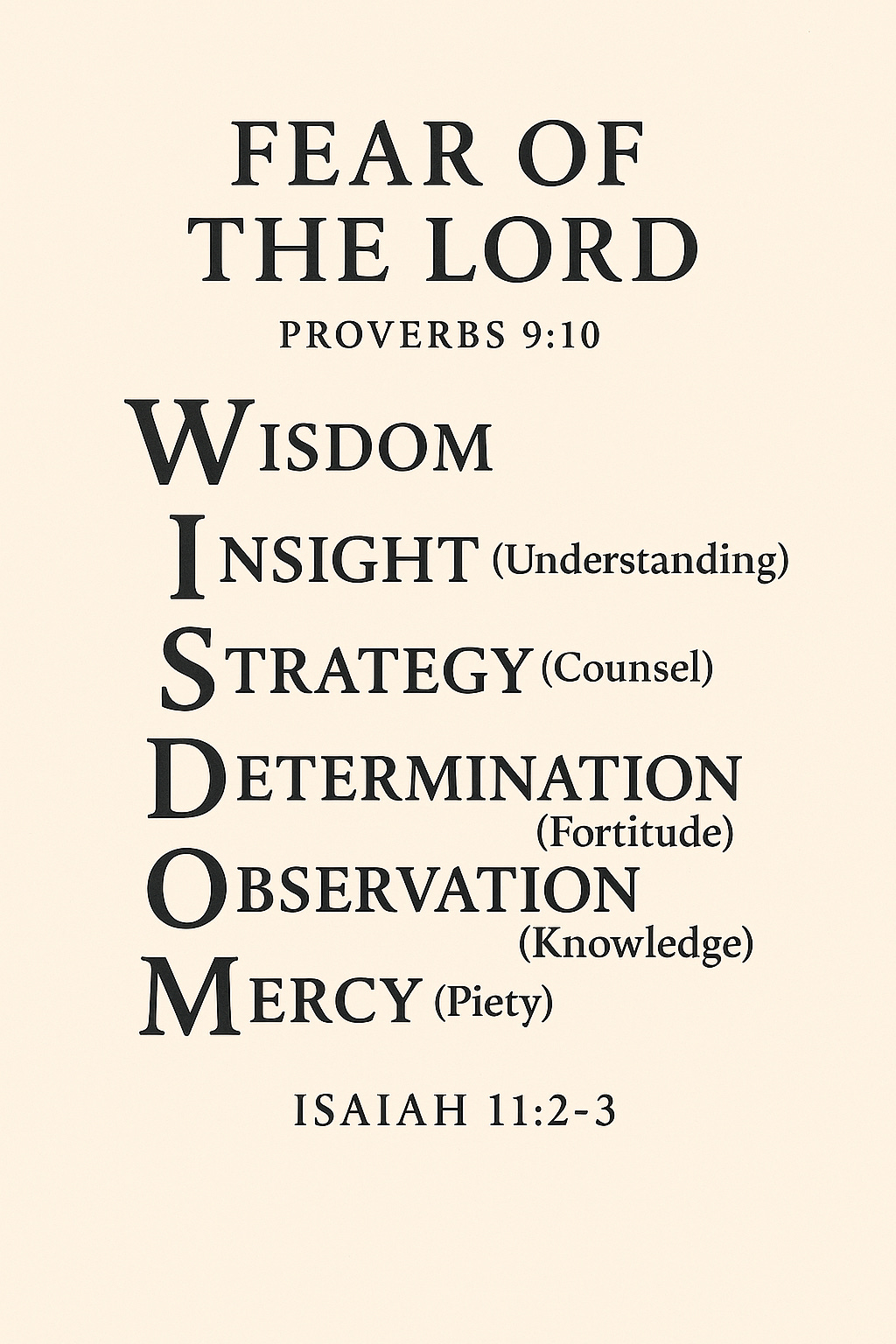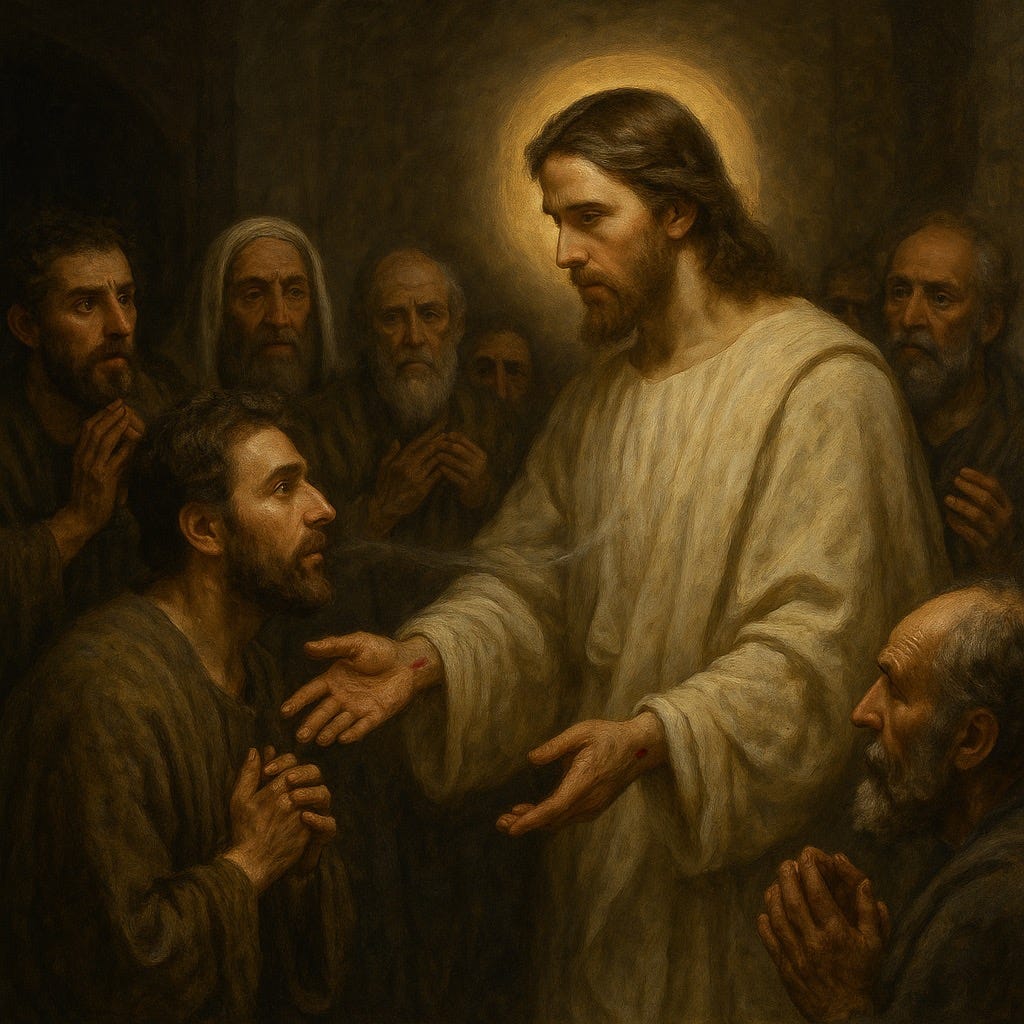🕊️ From Shinar to Jerusalem: When the Scattered Returned
Lectionary for Pentecost: Genesis 11:1–9 • Exodus 19:1–20 • Psalm 104:1, 24, 29–31, 34 • Ezekiel 37:1–14 • Joel 2:28–32 • Acts 2:1–21 • John 20:19–23 • 1 Corinthians 12:3b–13
🌾 A Season of Scattering and Gathering
Pentecost as Remembrance, Promise, and Homecoming
Fifty days have passed since Passover was celebrated.
In Jerusalem, the memory still lingers, of that final week, of political tension thick in the air, of an unexpected crucifixion that seemed to end everything, and a resurrection that shattered all expectations. There had been weeping, waiting, whispers of something new—but no one knew what shape it would take.
Now the city is full again.
Pilgrims have come from every direction.
Some are Jews by birth, others are Jews by adoption. Some are seekers who still stand at the threshold, drawn by covenant or kinship or some deep ache they cannot quite name.
They’ve come to celebrate Shavuot—the Feast of Weeks. It was a festival of harvest, a remembrance of the giving of the Law at Sinai, and a time when the people of Israel would bring the first-fruits of their fields to the temple in thanksgiving.
Ruth at Shavuot: The Outsider Gathered In
In Jewish tradition, the Book of Ruth is read during Shavuot.
Not just because it takes place during the barley and wheat harvest, but because Ruth herself embodies what the festival proclaims. She is the outsider welcomed in. A Moabite widow gleaning at the edges, brought close through kindness and covenant. Her story—of loyalty, longing, and belonging—mirrors what Shavuot offers: not only the Law at Sinai, but a gathering of the estranged.
“Your people will be my people, and your God my God.” Ruth 1:16
What Ruth experienced in Bethlehem, the nations now taste in Jerusalem. The same Spirit who once gathered grain now gathers people. And the field is open wide.
But this year, the first-fruits would not be barley or wheat.
They would be people.
This year, the fire would not descend on a mountain.
It would rest on heads.
This year, the Law would not be written on stone.
It would be written on hearts.
And from the silence of an upper room, the wind begins to move.
“Parthians, Medes, and Elamites…”Acts 2:9
The moment begins with names. Ancient ones. Tribal ones. Names most modern readers pass over, unaware that they carry entire histories within them. Names that speak of scattering—of Babel, of empire, of exile.
But these are not footnotes. They are a summons. They stretch across deserts and centuries and bloodlines, reaching all the way back to the plain of Shinar, where a tower was once raised in defiance and God came down to confuse and disperse.
“The Lord scattered them over the face of the whole earth.” Genesis 11:9
That scattering was mercy. A restraint. The confusion of language was not a curse, but a holding back—a way to protect us from ourselves.
And yet now, in Jerusalem, the voices return. No longer confused. No longer divided.
“All of them were filled with the Holy Spirit… and each one heard them speaking in his own language.” Acts 2:4, 6
Those same ancient peoples—once scattered—now hear the gospel in their own tongue. Declared, not as conquered, but as known. Named, not as strangers, but as kin.
And these are my people.
My family comes from this part of the world—from Gilan and Tabriz, near the lands of Elam and Media, where the stories of Eden and exile still cling to the soil like early morning mist. The names in Acts are not abstractions to me. They are echoes. They are home.
When Fire Spoke Again
The memory of fire runs deep.
At Sinai, it descended on a mountain. Thick smoke, violent trembling, the voice of God etched into stone. That was the first Pentecost—Shavuot—fifty days after Israel passed through the sea.
“Mount Sinai was covered with smoke, because the Lord descended on it in fire… and the whole mountain trembled violently.” Exodus 19:18
Three thousand had once died at Sinai when Israel turned from the covenant before it was even fully delivered. Judgment had come. A wound was opened in the heart of the nation. After Moses comes down from Mount Sinai and sees the Israelites worshiping the golden calf, he smashes the tablets of the covenant. In deep grief and righteous anger, he calls for those who are still loyal to the Lord to take action. The tribe of Levi responds.
“The Levites did as Moses commanded, and that day about three thousand of the people died.” Exodus 32:27–28
But now, something is being healed.
“They saw what seemed to be tongues of fire… and all of them were filled with the Holy Spirit.” Acts 2:3–4
At Pentecost, the giving of the Spirit results in the salvation of 3,000:
“Those who accepted his message were baptized, and about three thousand were added to their number that day.” Acts 2:41
This time, the fire does not rest on stone. It rests on heads. On hearts.
Three thousand are not lost. Three thousand are found…..and baptized in joy.
A new creation without distance or veil. The Breath of God….What was once thunder is now breath.
Just as the Spirit hovered over the waters at creation—like a mother bird spreading her wings over the deep—the same Spirit now descends upon the early Church. The chaos of Babel is being reversed. The scattered are being gathered. The formless is being formed again. Pentecost is not a beginning from nothing—it is creation, restored.
“Now the earth was formless and empty, darkness was over the surface of the deep, and the Spirit of God was hovering over the waters.” Genesis 1:2
The same Spirit who brought order out of primordial chaos now breathes unity into a fractured world. What He did once for the earth, He now does for the Body.
This is the fullness of the Spirit—what Isaiah described as the sevenfold Spirit of God: wisdom, understanding, counsel, might, knowledge, reverence, and awe.
“The Spirit of the Lord will rest on him—the Spirit of wisdom and of understanding, the Spirit of counsel and of might, the Spirit of the knowledge and fear of the Lord.” (Isaiah 11:2)
He hovers again—this time, over people.
“You send forth your Spirit, and they are created; and you renew the face of the earth.” Psalm 104:30
This psalm, often recited on Pentecost, is not only a song of nature but of new creation. It names what we now see—the Spirit renewing what was broken, restoring what was scattered, reviving what was dry and lifeless.
Esther, the Exiles, and the Longing for Home
In the days of Persia, God’s name was hidden—but His hand was not.
Esther never speaks the divine name, and yet she moves with the courage of someone who knows she is held. And through her, not only are the Jews preserved—but others join them.
“Many people of other nationalities became Jews.” Esther 8:17
Some from Media. From Elam. From the very lands I call home. Their descendants would pass down a faith that still pulsed in their blood, even generations later.
They came to Jerusalem for Shavuot—carrying the ache of distance, the memory of exile, the hope of return. They didn’t know they were stepping into fire. Or that the fire would not consume them—but complete them.
The Breath and the Bones
The prophets had seen it.
“I will pour out my Spirit on all people… and everyone who calls on the name of the Lord will be saved.” Joel 2:28, 32
Ezekiel once stood in a valley filled with bones—dry, scattered, forgotten. And then he was asked to speak. Not strategy. Not judgment. But breath
“Prophesy to the breath… and breath came into them; they stood up on their feet—a vast army.” Ezekiel 37:9–10
“I will put my Spirit in you and you will live…” Ezekiel 37:14
In Pentecost the Spirit fills what was once dead to Abundant Life. He calls us out of our graves.
Peter stands up and says: “this is that.”
The same breath that hovered over the waters, that filled Adam’s lungs, that stirred Ezekiel’s dry valley—now fills the Body of Christ.
“Peace be with you… Receive the Holy Spirit.” John 20:21–22
The Spirit is the power and the presence of God breathing life into the Church, His Body on earth.
The Tower Falls, the Temple Rises
At Babel, they said:
“Let us make a name for ourselves…” Genesis 11:4
But at Pentecost, Peter says:
“Everyone who calls on the name of the Lord will be saved.” Acts 2:21
This is the reversal……Instead of the flesh building….Now the Lord builds.
“You also, like living stones, are being built into a spiritual house.”1 Peter 2:5
The towers of ambition are transposed into the dwelling place for the Living God.
Those who had grown up with the language of Persia and the long memory of Jerusalem.
From Media and Elam are now bearing witness to the faithfulness of God
They heard their own names spoken in their own tongue.
As if the Spirit Himself was saying: “I remember and have not forgotten every detail of your life.”
And deep in their bones, they knew. They were coming home.
As are we.
That’s what Pentecost has always been—not a spectacle, but a homecoming.
The deep, startling joy of finally being known.
“Some, however, made fun of them and said, ‘They have had too much wine.’” Acts 2:13
There was so much joy that some bystanders thought it was drunkenness. Not because the disciples were out of control, but because joy this deep of finally belonging—can be hard to recognize. A heavenly joy of being welcomed into the family of God and being seen and known. The Spirit was making a people, a body, a temple, and a home.
“For we were all baptized by one Spirit so as to form one body—whether Jews or Greeks, slave or free—and we were all given the one Spirit to drink.” 1 Corinthians 12:13
And so the Church is born, not in fear, not in force, but in breath, and fire, and joy.

